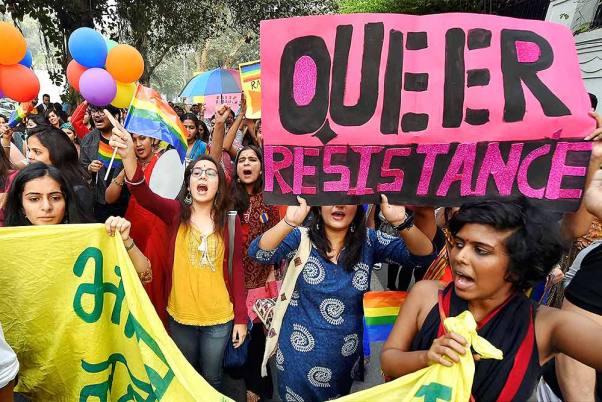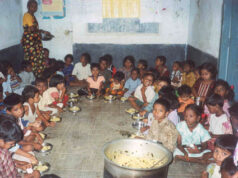The section of the population colloquially referred to as the LGBTQ+ community, an umbrella term used to refer to those including, but not limited to, lesbians, gay, bisexual, transgender and queer individuals, has historically been ostracised.
It has shouldered the responsibility of crafting their own narratives to counter stereotypes that have been thrust upon them.
The Public Choice Theory, although mostly used in an economic context, has as much relevance in the recognition and socio-economic progress of a minority community like the LGBTQ+ community to demonstrate that self-interest surmounts everything else.
However, the key question to be asked here is this: should the minorities suffer for their lack of representation in the process of policymaking? While there are around 10 million transgender persons in India, only about 5% are in gainful employment, according to the CEO of Periferry, a social start-up working on jobs and training opportunities for transgender individuals.
The first national census to record the population of the ‘third gender’ in 2011 revealed that only about 56% of the community were literate.
Additionally, given the purchasing power of the LGBTQ+ community, there is a natural incentive for them to be included in the formal markets. However, given the abuse and bigotry that they are subjected to, there is the need for formal skill-building and developing incentives for businesses to promote LGBTQ+ inclusion, says Godrej India Culture Lab’s A Manifesto for Trans Inclusion in The Indian Workplace.
In September 2018, when Justice Indu Malhotra, summarised her judicial opinion with the words “History owes an apology to this community,” the LGBTQ+ community breathed a sigh of collective relief – change had finally arrived.
With the first phase of the battle won, i.e., successful decriminalisation, the second phase on the road to equality especially for those who are the most marginalised, would have meant positive entitlement such as the right to marry, adopt, have a family, among others, according to Jayna Kothari of the Centre for Law and Policy Research.
The appropriate change in criminal law and reservation in employment and education are also areas that need urgent attention.
However, the formalisation of some recent regulations seems to have further spurred the community and must be examined in the spirit of Indian Constitution – do they uphold the values of justice, liberty, equality and fraternity?
The Surrogacy (Regulation) bill, 2019, passed in the Lok Sabha restricts the idea of family to that of heterosexual marriage. The bill excludes LGBTQ+ couples and single people from this method of conception. India’s adoption laws are also contingent on the idea of marriage, in the process, marginalising most of the LGBTQ+ community.
The Transgender Persons (Protection of Rights) Act, 2019 (Trans Protection Act) ends up diluting the rights of the community and creates further inequity. It ignores the landmark decision of the Supreme Court in the National Legal Services Authority of India (NALSA) vs Union of India case, which recognised that one’s right to expression of his self-identified gender falls within the ambit of Article 19(a) of the Constitution of India.
NALSA also provided legal recognition to the third gender, as opposed to the binary of male and female.
The Trans Protection Act vests the District Magistrate with the power to issue a certificate of gender, not only violating the principles of self-determination but also opening avenues of rent-seeking and abuse.
The Act, problematically, enables the medical and pharmaceutical community, alongside the government machinery to determine what trans persons should do with their bodies, reducing their identity to that of just the trans body.
Another cause for alarm is that the penalty for rape of transgender persons only amounts to up to two years versus between seven years to life for the rape of a cisgender woman, violating the spirit of rule of law, writes Vikramaditya Sahay in a blog entitled The sexual is political: Consent and the Transgender Persons (Protection of Rights) Act, 2019.
Other areas of concern include the lack of trans-representation (five of 30 members) in a committee being formed to further the transgender cause under this bill and the absolute lack of any significant positive rights.
The Trans Protection Act does allude to increased LGBTQ+ rights in some places such as the prohibition of discrimination. It, however, does not provide a mechanism to realise any of these provisions, according to Vani Sharma, writing in Inclusive Public Policy.
The Rights of Transgender Persons Bill proposed by Tiruchi Siva in 2014, was widely recognised as a step in the right direction and was backed by the wider community, but sadly, it never saw the light of day. Keeping in mind the relatively small number of voters in the community, do the parliamentarians really lean towards safeguarding the best interests of the community? Very often, not.
The small size and closeted existence of the transgender community make it difficult to register policy concerns in the public’s consciousness, notes Jami Kathleen Taylor of North Carolina State University in an essay titled “Transgender Identities and Public Policy in the United States- The Relevance for Public Administration”.
If we are to employ an institutional lens to this issue, we see an institution at odds with itself, with the judiciary often leading the charge on trans inclusion as the executive branch offers platitudes.
This is further evidenced in the actions of the government in the current COVID – 19 crises. Stripped of their traditional sources of income and left without means to get identity proofs such as ration cards, the transgender community moved the Telangana High Court to secure food and ration.
The Ministry of Social Justice and Empowerment on April 18, 2020, amidst the COVID-19 lockdown, notified the Draft Transgender Persons (Protection of Rights) Rules, 2020, inviting comments thereon.
Such action on part of the government, ignoring the inability of the community in this situation to scrutinise the Draft Rules, is an abhorrent act of apathy.
Keeping in mind the principles of self-determination, the community’s voice must be heard via increased representation in policy-making forums and grassroots collaboration. Laws around civil liberties need to be consistent, clear and enforceable. Equal dignity leads to equal inventiveness and it is clear to the LGBTQ+ community in India that the road to equality is still long and uphill.
Read more: Indian Liberals saw through the Chinese game plan in 1950
Post Disclaimer
The opinions expressed in this essay are those of the authors. They do not purport to reflect the opinions or views of CCS.






